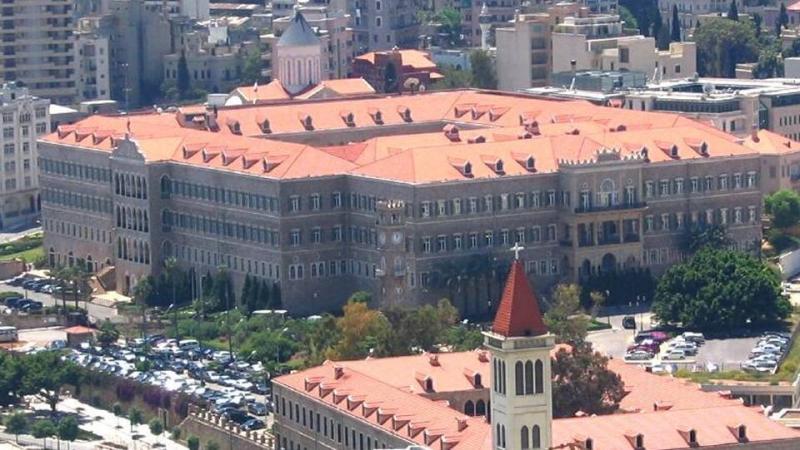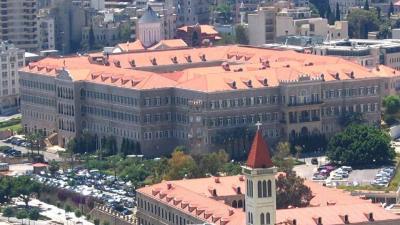The consultative meeting held by President Najib Mikati, on the afternoon of the day before yesterday, at the "Grand Serail" with the ministers of the caretaker government concluded with the formation of a ministerial committee consisting of judges Mohammad Mortada, Abbas Halabi, Bassam Maalouli, and Henry Khoury. This committee met yesterday to discuss setting an agenda for any future Cabinet sessions that may take place while the government remains in caretaker status, particularly if there is a need to manage state affairs and citizens' issues.
Although the ministerial consultative meeting took place in a calm and serious atmosphere, Mikati, according to a ministerial source for "Asharq Al-Awsat," did not accept a proposal put forward by several ministers aligned with the team of former President Michel Aoun and Deputy Gebran Bassil, which suggested substituting necessary Cabinet sessions with signed decrees from the relevant ministers to facilitate citizens' affairs. The ministerial source asserts that such signed decrees were employed during the presidential term of former President Amine Gemayel, specifically during the time that caused the country to divide and amid the front lines that led to the split of Beirut into eastern and western parts.
The source reports that Mikati outright rejected even discussing the proposal submitted by retired Brigadier General Morris Sleiman, Minister of Defense, and Minister of Social Affairs Hector Hajjar, on the grounds that it implies to the outside, and before the inside, that the country is in a state of political and sectarian division, and that there is a problem preventing communication; not just among state officials but also among the Lebanese people themselves.
Mikati is quoted by the ministerial source as saying that such a proposal would return the country to the division and communication breakdown left by the war, contrary to the current situation, which still enjoys security stability despite the strained economic circumstances and the resultant unprecedented financial, social, and living issues. The same source reveals that ministers from the same political team conditioned their approval to convene Cabinet sessions on President Mikati consulting them in advance about the agenda and considering their opinions on withdrawing this item or that from the agenda.
The source emphasizes that Mikati is not inclined to accept such a proposal, which aims to circumvent the powers of the Prime Minister, stating that simply adhering to it would mean that every minister, during the presidential vacuum, would act in place of the President regarding consultations, and would negotiate with the Prime Minister on preparing the Cabinet session agendas. While the ministerial source doubts that Mikati intends to engage in a political confrontation with any minister, he is nonetheless cautious about urgently and exceptionally convening the Council of Ministers under the justification that there is a need to manage citizens' affairs, asserting that he must bear the responsibility.
In this context, the ministerial source asks: What will the ministers who impose their conditions say when they agree to convene the Cabinet if the promotion of deserving officers is postponed to the New Year, as its approval necessitates the convening of the Cabinet in an emergency session to issue the decree amidst the presidential vacancy? How will the Minister of Defense, who is placing conditions for holding the session, behave?
This source also questions whether the ministers opposing the convening of government sessions unless Mikati considers their perspective, have the capacity to persist indefinitely. What will these individuals tell the Lebanese amid the ongoing deadlock regarding the election of a President, in tandem with the worsening living and social crises? He emphasizes that the committee of wise ministers will find it challenging to leap over the disruption of Cabinet sessions and will be forced to outline a roadmap that allows the Cabinet to collectively take the necessary and exceptional decisions, counter to some beliefs that such sessions are unconstitutional, insisting on the narrow essential governance while the majority of the Lebanese people suffer more each day.




